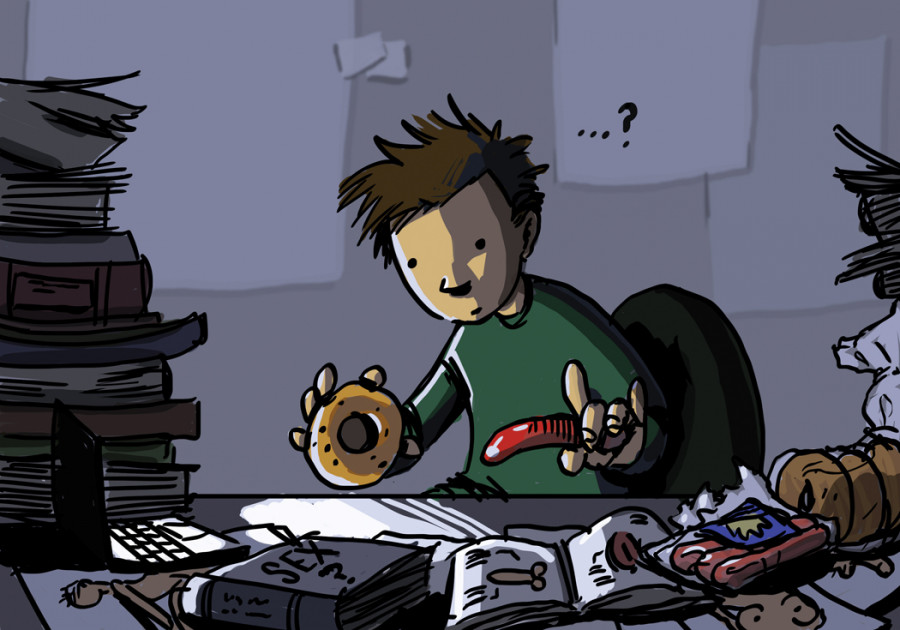Let’s Talk About Sex
Quebec’s Lack of Formal Sex Ed Leaves Students at Risk
In 2005, the Quebec government made the decision to cut sexual education from its mandatory curriculum, making it the only province without some kind of formal sexual education in their school system. Nearly a decade later, young people in the province seem to be paying the price.
Once upon a time in the kingdom of Some Bar on St. Laurent, two young people went home together for the night. They never saw each other again, and lived happily ever after, until two weeks later when one of them noticed an aggravating outbreak of red bumps on their genitals.
They declared their active sex life dead on arrival and were resigned to a life of isolation, believing there to be no help available. This was not the kind of problem they had ever discussed at school.
“There are very few opportunities for sexual health to be discussed with youth,” said Kimberly Wong, the HIV educator at AIDS Community Care Montreal, an organization that provides support services as well as educational material on sexual education to the public. “They will either learn it from their parents, peers or from the Internet so there is very little quality control on what information they are receiving.”
This void in the world of Quebec education seems to have the province’s youth misinformed. At least, that’s what the statistics suggest—the latest Quebec stats show that STI rates have been on a constant rise, most notably among 15- to 24-year-olds, according to Wong.
What’s more, with technology developing at an alarming rate, there are new age issues to be considered that make even the current curriculums of other provinces outdated.
No longer are horrific slideshows of STIs and putting condoms on bananas substantial enough to arm today’s youth with all the knowledge they require—they’ve got cellphones and are not afraid to use them. Now, more than ever, there is an urgent need to reform and reinstate sexual education.
An article in the Toronto Star in October 2013 stated that Ontario’s sexual education material was 15 years out of date, lacking information on new and crucial topics, including cyberbullying, sexting and mental health, all of which have become increasingly relevant to the youth of today.
What’s more, many programs chiefly emphasize abstinence, only teaching young people not to do things because of possible negative consequences, with little focus on what they should do if they must face those consequences, such as contracting an STI or becoming pregnant.
Students across Canada may be ill-equipped to handle this strange new world they live in, but Quebec’s youth are at a distinct disadvantage by having literally nothing to go on.
While there have not been any official studies correlating the lack of sexual education to the rising STI rates, there is a simple cause and effect factor to these statistics which is difficult to ignore. With the numbers rising, it could be considered a call to arms to ensure something is resolved.
“Something needs to be done on a larger scale,” said Wong. “Though we are proud of the work that we do at ACCM, we can only reach out to so many youth.
“There should be discussion between the ministry and community groups who offer sex education to youth, so that they can consult on content and teaching and facilitation strategies so that sex education can eventually be reinstated in schools,” she continued.
With the lack of quality information out there, and many educators fumbling with the reigns, community organizations like ACCM, have developed programs and seminars to educate today’s youth on this often sensitive subject.
In addition to teaching resources, ACCM provides programs such as safe sex workshops, sexual health kiosks and SextEd, an anonymous sexual health texting service in which young people can text a question and receive an answer and a link to further information within 24 hours.
While these local organizations are seeking to stand-in where the government has fallen down, there is not nearly enough being done to ensure that all young people have the information they need.
In other provinces, sexual education can begin as early as the first grade, where there is often a discussion of different body parts and what constitutes inappropriate touching. Young people in Quebec are simply left without any direction, even from early development.
“Not having easy access to accurate and up to date sexual health information [is a problem],” said Wong.
Under the 2005 ruling, some have suggested that students can simply bring up questions they might have with other teachers in their regular classes. But this ignores the fact that not all students are comfortable talking about their sexual health with a teacher they might see every day, nor is there a guarantee that all teachers are qualified to talk about such a subject with a sense of authority.
ACCM provides a free teacher’s toolkit for any educator looking for resources, but the faculty must reach out first, which is not always desirable. The Sense Project by Head and Hands also visits schools to provide workshops on the subject matter where the government has dropped the ball—again, at the prompting of administration.
It’s hard to imagine what sort of epidemic would have to rise to stir up a ministerial ruling to change this situation. It’s a case study in the fact that, in life, there are few clean-cut happily-ever-afters.




_600_375_90_s_c1.JPG)
_600_375_90_s_c1.jpg)

_600_375_90_s_c1.jpg)